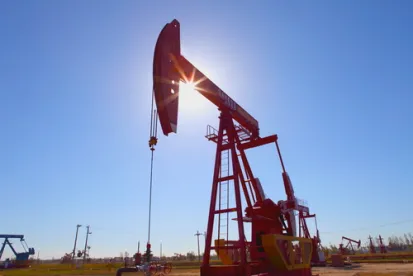On his first full day in office, President Biden indicated that the moderate Joe Biden we were all expecting might not be appearing on oil and gas issues and his administration’s energy policies would be informed by the more progressive wing of the Democratic Party. On January 21, an acting Secretary of the Interior issued Order 3395, which imposes a 60-day pause on the issuance of new leases and permits for oil and gas drilling on federal lands and offshore, without being approved by one of nine senior Department of the Interior officials.[1] While no guidance has been issued and the secretary order is not entirely clear, in practice, existing operations on current leases will continue, and it has been reported that several operators have been issued new permits for ongoing operations.
The secretary order suspends the delegation of executive authority and provides that the following actions require the approval of an Assistant Secretary, a Solicitor, a Deputy Secretary, or the Secretary of Interior:
-
Publication of any proposed or final agency action taken in accordance with the National Environmental Policy Act
-
Granting rights of way or easements or any conveyance of property or interest in oil and gas on federal lands and offshore
-
Issuance of any onshore or offshore fossil fuel authorization, including a lease, amendment to a lease, “affirmative extension of a lease, contract, or other agreement, or permit to drill”
The order declares that the action “does not limit existing operations under valid leases.”
To this end, it has been reported that Interior revoked 70 onshore permits that did not follow the order’s requirement that permits have approval by one of the nine Interior officials.[2] This action is not expected to happen again, but shows the will Interior has to pull already approved permits.
If Interior continues the apparent current practice of issuing new and revised permits on existing leases, the secretary order may not have a substantial impact on continuing operations and production. However, the ambiguities in the order have cast a cloud of uncertainty on an already struggling oil and gas industry, and it is likely only the first step in making drilling on federal lands and offshore progressively more difficult.
In addition, on January 27, 2021, President Biden issued a sweeping executive order addressing climate change. While the executive order establishes various climate change-focused committees and mandates that a “government-wide approach” to climate change be implemented, the executive order directs the Secretary of the Interior to “pause new oil and natural gas leases on public lands or in offshore waters pending completion of a comprehensive review and reconsideration of federal oil and gas permitting and leasing practices in light of the Secretary of the Interior’s broad stewardship responsibilities over public lands and in offshore waters, including potential climate and other impacts associated with oil and gas activities on public lands or in offshore waters.”[3] Clearly, the Biden administration is considering adding more stringent environmental reviews in the leasing and permitting for drilling on public lands and offshore, if not an outright stoppage to issuing more leases, especially offshore. The industry should expect new regulations or guidance requiring that Interior take into consideration greenhouse gas emissions and climate change when it considers new oil and gas leases and permits on federal lands and offshore.
[1] https://www.doi.gov/sites/doi.gov/files/elips/documents/so-3395-signed.pdf.
[2] https://www.rigzone.com/news/wire/biden_admin_pulls_drilling_permits-01-feb-2021-164484-article/.





 />i
/>i
